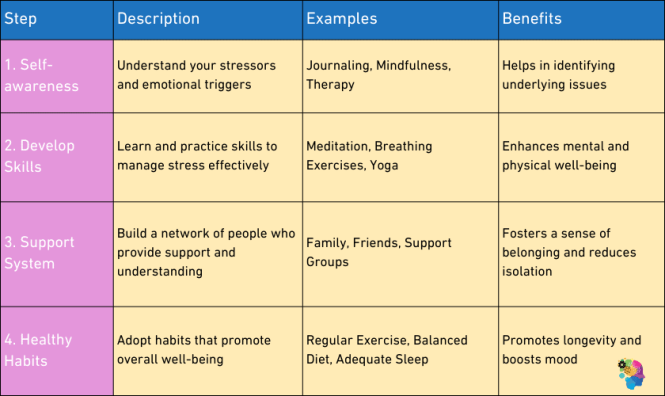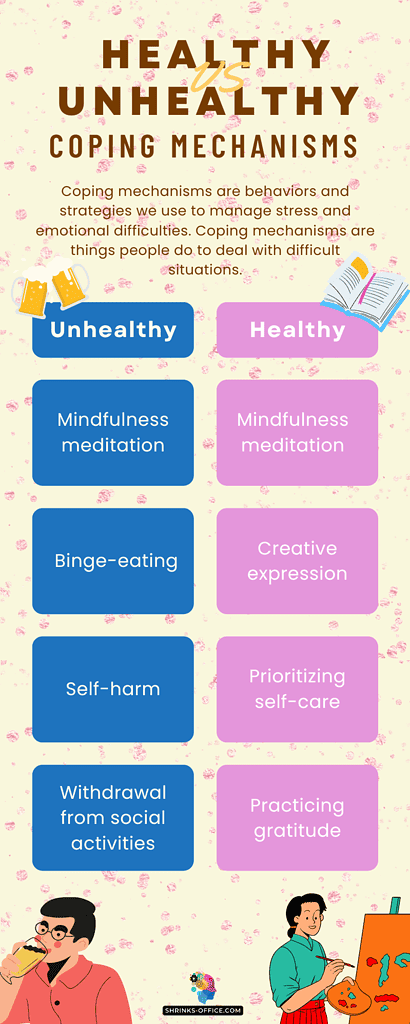

The impact of stress on women’s health is a significant and often overlooked issue. Stress, whether stemming from work, relationships, or personal circumstances, can have far-reaching consequences for women’s overall well-being. Understanding the multifaceted ways stress affects women’s health and exploring effective coping mechanisms is crucial for promoting healthy living. This article delves into the intricate relationship between stress and women’s health, exploring various stress triggers, the detrimental health effects, and ultimately, providing actionable strategies for navigating stress and maintaining emotional well-being. The structure of this article will guide you through exploring stress-related concerns, identifying practical solutions, and ultimately equipping you with the tools to manage stress more effectively.
Understanding the Stress-Health Connection
Stress as a Universal Experience
Stress, a ubiquitous part of modern life, can manifest in various ways and affect individuals differently. While experiencing stress is unavoidable, the impact of chronic stress can be significantly detrimental, especially for women. Understanding the physiological and psychological effects of stress on women’s health is essential for developing targeted coping strategies. The concept of stress response, a common experience, can lead to physical and emotional responses that can become detrimental to overall well-being. Recent studies show a strong link between stress and health issues.
The Impact of Stress on Women’s Bodies
Numerous factors contribute to the unique impact of stress on women. Women often juggle multiple roles—professional, familial, and personal—resulting in a higher susceptibility to stress. Hormonal fluctuations, particularly during menstruation, pregnancy, and menopause, influence stress response. These hormonal changes can interact with existing stressors, potentially exacerbating the impact on women’s health. Women often experience emotional and physical symptoms when experiencing chronic stress. For example, one study in 2020 discovered a correlation between chronic stress and increased risk of heart disease, particularly among women.
Stress and Women’s Mental Health
Stress can profoundly affect women’s mental health. Women report experiencing anxiety, depression, and burnout due to stress-related triggers. These mental health concerns often go untreated, leading to a cascade of negative consequences for overall well-being. Some psychological studies highlight how societal pressures and expectations can significantly affect women’s mental health.
Identifying Stressors
Work-Life Balance Challenges
Balancing professional responsibilities with family and personal commitments often proves challenging for women. The relentless pressure to excel in both spheres can contribute to significant stress. The demanding nature of modern work often exacerbates the difficulty of balancing multiple roles and responsibilities. This can affect women’s emotional and physical well-being. Many women feel overwhelmed with the demands of their job and other aspects of their life. This can lead to feelings of exhaustion, anxiety, and depression.
Relationship Dynamics
Stressful relationships, whether interpersonal or familial, can take a significant toll on women’s mental health. The emotional demands and expectations in intimate partnerships, familial relationships, and social interactions can lead to chronic stress if not managed properly. Often women carry the majority of household responsibilities and childcare, leading to increased stress. Many women feel overwhelmed and unappreciated for their efforts. This can affect their overall well-being.
Societal Pressures
Women often face societal pressures that contribute to stress, impacting their emotional well-being and physical health. Gender inequalities and stereotypes create unique challenges that can be sources of chronic stress and impact women’s mental health negatively. Some studies also point out the association between societal pressures and the development of mental health conditions in women.
Healthy Coping Mechanisms
Mindfulness and Meditation
Mindfulness and meditation techniques are powerful tools for managing stress. These practices cultivate present-moment awareness, helping individuals detach from stressful thoughts and emotions. Through regular mindfulness and meditation, women can foster resilience against daily stressors. Many women find these techniques helpful in reducing anxiety and promoting a sense of calm.
Physical Activity
Physical activity is a vital stress reliever. Exercise releases endorphins, natural mood boosters that can help counteract the effects of stress. A dedicated exercise routine can effectively help reduce the intensity of stress-related symptoms. It is an effective and beneficial stress-relief strategy. For women struggling with stress, engaging in regular physical activity is crucial for improving overall well-being.
Seeking Support and Communication
Open communication with loved ones and support networks can make a significant difference. Sharing concerns and seeking support can alleviate feelings of isolation and stress. Women need to feel empowered to seek help when needed, and this should be readily available. Communicating with trusted individuals can reduce feelings of stress and pressure.
Lifestyle Adjustments
Prioritizing Self-Care
Prioritizing self-care activities is paramount for managing stress. Engaging in activities that promote relaxation and rejuvenation, such as taking baths, listening to music, reading, or spending time in nature, can help women recharge and reduce stress levels. These activities can positively impact women’s mental and emotional health. Self-care helps women relax, re-energize, and reduce the intensity of stress.
Establishing Healthy Boundaries
Setting healthy boundaries in personal and professional relationships is essential for managing stress. Learning to say no to commitments that overwhelm you and prioritize your needs can significantly reduce stress levels. Healthy boundaries are important for individuals in all aspects of their lives. Setting these boundaries protects mental and emotional well-being.
Nutrition
Maintaining a balanced diet rich in fruits, vegetables, and whole grains is crucial for overall well-being. Nourishing your body with healthy foods can improve mood, reduce stress, and strengthen the immune system. Making conscious dietary choices can positively impact stress levels.
Professional Help
Therapists and Counselors
Seeking professional help from therapists or counselors is an important step in managing stress. Therapists can provide guidance and support, offering strategies for coping with stress and developing coping mechanisms. Therapists and counselors can offer customized approaches that cater to individual needs and preferences. They can assess the root causes of stress and help develop personalized solutions.
Healthcare Providers
Healthcare providers can play a critical role in addressing stress-related health issues. Regular checkups with doctors can identify potential health concerns linked to stress. Healthcare providers can provide information and recommendations to better manage stress and its effects on the body. Healthcare practitioners can offer critical insights on improving overall well-being.
Support Groups
Support groups can provide valuable peer-to-peer support, fostering a sense of connection and understanding among women facing similar challenges. Women sharing similar experiences and challenges can feel empowered. These groups can act as valuable resources in managing stress and its effects.
In conclusion, understanding the impact of stress on women’s health is crucial for promoting well-being and empowering women to prioritize their mental and physical health. Stress management techniques, combined with access to supportive resources and open communication with healthcare professionals, are key to mitigating the adverse effects of stress and fostering resilience. By prioritizing self-care and actively seeking support, women can effectively navigate the challenges of modern life and cultivate healthy coping mechanisms. Take the first step towards a healthier, more balanced life today by exploring the resources provided in this article. Learn more about stress management strategies that work for you.